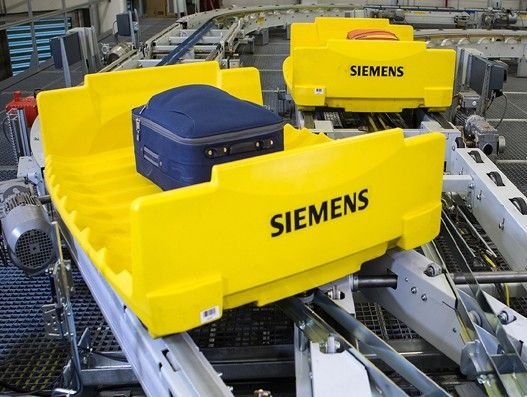
Siemens installs hi-tech baggage handling system at Incheon Airport
February 16, 2018: Siemens Postal, Parcel & Airport Logistics (SPPAL) has recently set up one of the most modern and high-performance baggage handling systems at the recently opened Terminal 2 of the Incheon International Airport in South Korea. The system combines innovative conveyor and sorting technology with smart software, which enables peak throughputs of almost […]

February 16, 2018: Siemens Postal, Parcel & Airport Logistics (SPPAL) has recently set up one of the most modern and high-performance baggage handling systems at the recently opened Terminal 2 of the Incheon International Airport in South Korea.
The system combines innovative conveyor and sorting technology with smart software, which enables peak throughputs of almost 20,000 pieces of baggage every day.
Siemens, which is technology leader in a consortium with the South Korean company Posco, implemented the system.
Through a multi-year service agreement, Siemens will provide seamless operations of the over 40-kilometer-long conveyor system. The integrated concept of system supply and maintenance from a single source will reinforce the airport’s efforts to increase passenger capacity, from 58 million to over 72 million every year.
The new baggage handling systems will enable the airport to strengthen, and further reinforce its position as a leading hub airport in the Asia Pacific region.
“Our future-oriented baggage handling system will play a dominant role for the new Terminal 2 at the Incheon Airport,” said Michael Reichle, CEO of Siemens Postal, Parcel & Airport Logistics.
“With our innovative system, coupled with advanced IT technology, expertise, and reliability, we are equipped to provide our customers a long-term support that will help drive profitable growth.”
Jong-Seo Kim, vice president operations of the Incheon International Airport Corporation said: “The key focus of our airport is on passengers. The new baggage handling system will decisively contribute towards ensuring the highest level of passenger convenience and comfort.”
The system has ultramodern baggage handling processes that will provide travelers with adequate time to relax in the departures area. The system is also equipped with redundant capacity to ensure great flexibility and availability. In case any sections or components fail, the baggage can be rerouted to its destination in time.
Currently, the delayed baggage rate at the Incheon Airport accounts merely 0.3 items for every 100,000 pieces of checked baggage. Compared to it, the global average remains much high at 11.5 delayed bags for every 100,000 pieces. Incheon’s passengers are expected to significantly benefit in terms of security and reliability.
Siemens offers 180 ergonomically designed check-ins in the departure hall to the 12 baggage reclaim belts in the arrival area. All processes in the baggage handling chain are covered, from end-to-end. Inside the system, checked bags can move from the new VarioBelt conveyor to four VarioSort TTS 1100 tilt-tray sorters that will presort the baggage. The VarioSort TTS 1100 has been specially designed to ensure reliable handling of large volumes of baggage. The new VarioTrays has the ability to carry out main sorting task, and onward transport of each baggage piece. Its energy efficient high-throughput solution is yet another hi-tech feather.
At Incheon Airport, Siemens installed tray-based early bag store (EBS) to offer temporary storage of transfer baggage. The EBS is a high-bay storage and retrieval system to handle 2,000 baggage pieces.
The high-performance software applications of Siemens offer intelligent process control across the entire baggage handling system. It includes a programmable logic controller (PLC), and a Supervisory Control and Data Acquisition (SCADA) system for computer-based monitoring, and control of overall technical processes.
To ensure smooth and efficient operations, the airport has entered into a long-term service agreement with Siemens, which covers maintenance and repair of the IT and PLC systems.
As part of this innovative service concept, the on-site team of Siemens will focus on preventive maintenance, which comprises condition-based and predictive measures. This will prevent equipment and system failures, and operational outages.

